Sustainability vs. price optimisation. Automation of the processes vs. the desire for more individualisation. Fast deliveries vs. quality control. Digitalisation of the communications vs. direct personal contact. The European promotional products industry is currently confronted with many conflicting tasks and all of this amid a highly charged and fragile political environment. 2018 was in spite of this a good year for the industry as the survey carried out by eppi magazine among the suppliers and distributors throughout Europe demonstrates.
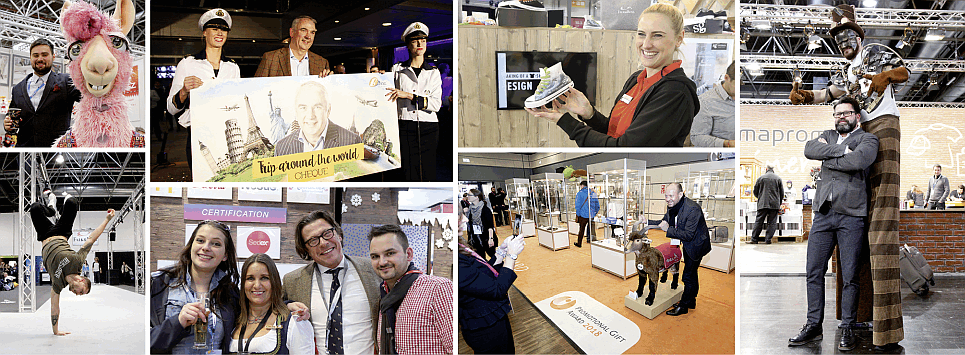
Reviews of the past year are always an occasion to pay tribute to those people who passed away during the course of the year. In 2018, the global public mourned the loss of such influential celebrities as the US Senator John McCain, Microsoft founder Paul Allen, the creator of Spider Man Stan Lee or the music legends Charles Aznavour and Montserrat Caballé. Stephen Hawking is also one of the people that many will miss dearly. The famous scientist not only made contemplating physics and the universe popular and significantly influenced the attitude towards the disabled with his public appearances, but also leaves us with a legacy of ingenious sentences and quotes. Sentences like “Intelligence is the ability to adapt to change”, “However difficult life may seem, there is always something you can do and succeed at. What matters is that you don’t just give up“ or “Try to make sense of what you see“, have also found their way into the motivation speeches of many entrepreneurs and serve as structuring aids in the form of (sub-)headings in the following market analysis.
“It’s a crazy world out there”

Tech gadgets like wireless chargers stay high in popularity.
Politically speaking, Europe is currently experiencing anything but quiet times. The migration wave has indeed died down, but the theme still prevails on the public agenda and a huge gap remains between the two opposing camps. Europe is being put to the crucial test, in 2018 there was no relief in sight, on the contrary: Great Britain is fathoming out how the relations to Europe could be following the Brexit – a theme that is dividing the country. Deeply indebted Italy is arguing with the EU about its draft budget. The stability of Germany that has been glorified as being exemplary for years is frequently being perceived as paralysing in the face of numerous disputes within the coalition. Turkey is battling against the highest rate of inflation for 15 years, in Spain the Catalonia issue is still far from being solved. Add to this global conflicts, diplomatic upheavals – for example the Skripal or Khashoggi scandals – the Syria crisis or the trade wars initiated by the US President Trump.
In the face of this difficult climate, it wouldn’t be surprising if the global economy had suffered as a result, but far from it: The global economic growth is still strong and the growth rate is predicted to be 3.7% for 2018 by the OECD (Organisation for Economic Corporation and Sustainability vs. price optimisation. Automation of the processes vs. the desire for more individualisation. Fast deliveries vs. quality control. Digitalisation of the communications vs. direct personal contact. The European promotional products industry is currently confronted with many conflicting tasks and all of this amid a highly charged and fragile political environment. 2018 was in spite of this a good year for the industry as the survey carried out by eppi magazine among the suppliers and distributors throughout Europe demonstrates. Development), the growth in Europe 1.9%. The economy is experiencing an ongoing high, in the same way that a meteorological high hit large parts of Northern and Central Europe earlier this year in the spring and summer. No clouds in sight as far as one could see. This historic summer with extreme draught periods was extraordinary and led among others to a shortage of T-shirts during the summer months in the normally so cool Norway – that speaks volumes. A long summer, on top of that the Football World Cup and the subsequent summer vacations – such a constellation tends to be unfortunate for the promotional products industry, because many of the decision-makers couldn’t be reached for a long period of time. But the threemonth summer blues that some of the market players experienced, obviously didn’t have a serious impact on the annual results. Across Europe the industry recorded good figures. “Until November 1, BeGlobal grew by 34.9% compared to last year” (Andre Noordwijk, BeGlobal). “2018 has been a very good year for Goldenberry and despite such a competitive market, it is another year of double-digit, dynamic sales growth” (Olaf Dabrowski, Goldenberry). “We were able to double our turnover within the last three years” (Serge Birecki, Pixika).
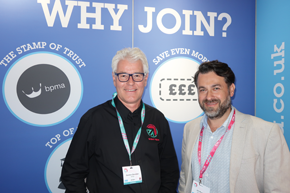
Goodbye Gordon: Gordon Glenister (l), Director General of the BPMA (British Promotional Merchandise Association) resigned, Jon Birrell took over the reins.
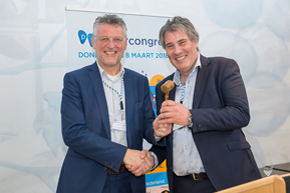
Edwin Bouman (r), Chairman of the Dutch association PPP (Platform Promotional Products) handed the Executive Board hammer over to his successor Joop van Veelen.
“Life is empty without work”
As a rule, high increases in turnover are a welcome phenomenon, but not quite unproblematic. “It’s indeed a tough job to deal with such tremendous growth, since we don’t want to lose our agility” (Birecki). Growth demands new structures, which often lead to a loss in flexibility. In addition: More orders mean more work and each individual order causes much more work than was previously the case. “The volumes of the printing orders have declined constantly, the delivery times are shorter” (Ricardo Palma, R3D). Hence growths in turnover can only be achieved adequately with an increased headcount, however in many of the industrial nations, the labour market is bare – it is not only difficult to get “good” staff, it is hard to recruit staff at all. At the same time, many entrepreneurs are overwhelmed by the growing administrative tasks: The latest example: The GDPR (General Data Protection Regulation) that came into effect at the end of May proved to be a true bureaucratic monster and swallowed up umpteen manhours in the small and medium-sized companies of the promotional products Industry.
Another thing is worrying the company directors: the increased demands of the customers regarding quality, product safety and CSR. Promotional products users are looking more closely at which products they buy and implement for their customers. Ultimately, it is the critical consumers that no longer act following the motto “Never look a gift horse in the mouth”, and ask themselves instead whether the products they have received match their corporate image and own values. “Corporations are listening to where the consumers are putting their dollars and as buyers are investing their money in eco-friendly products and brands, companies are changing practices to meet their demands” (Lasse Lauritzen, IDE House of Brands). In order to cover their own backs, many of the users are compiling a wide catalogue of requirements. “We spend more and more time proving the harmlessness of our products by acquiring certificates and seals” (Erik Jul Nielsen, Langhoff). Often the documentation of individual orders fills whole folders. In spite of the extra effort, it is principally a positive development. Because the quality and thus also the reputation of haptic advertising has constantly improved over the past years.
“Climate change is one of the great dangers we face”
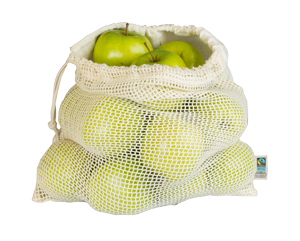
As plastic bags are banned in more and more EU countries, sustainable materials are on the move.
The desire for more sustainability is one of the most significant trends that is perceivable across all of the markets. “Nearly all of the trends were directly or indirectly connected to the theme sustainability. In addition to design and functionality, today’s promotional products have to satisfy the social demands for a sustainable and as far as possible ecological production chain” (Marcus Sperber, elasto). “The back-lash against plastic is certainly helping our business” (Evan Lewis, eco-promo). Worrying about the future of the planet is on the minds of more and more people and this demands a new approach in terms of the production cycles and transport routes. Alone: Switching over to using really sustainable materials and production methods costs a lot of money, but hardly anyone is prepared to pay the higher prices. “We have significantly more enquiries, but the customers often then opt for less sustainable options due to the price. Ecology doesn’t bring a good return” (Manfred Janek, KW open). “Not many companies accept the higher price that goes along with environmental responsibility” (Laura Chico, Stilolinea). “We are hoping that the prices will become more balanced when the production of sustainable products becomes widespread” (Volkan Bars, Vog Tekstil). The hope that the demand for sustainable promotional products would lead to a relaxation in the price negotiations has not yet been fulfilled. On the contrary. Many market participants are reporting that the margins are coming under more pressure, the price wars are raging with a tremendous force. “The price war is partly taking on absurd forms and is becoming totally extreme” (Steven Baumgärtner, cyber-Wear). “Leading Spanish companies are offering customers huge stocks at the lowest prices ever. This makes the position for the medium-sized companies difficult” (Emilio Estellés-Zanón, encender y excribir).
In the light of the price pressure in spite of an increasing demand for “made in Europe” items, the majority of the promotional products sold in Europe are still imported from the Far East. China remains to be the main import market, the Chinese suppliers are no longer far behind the European manufacturers in terms of quality awareness. “The growing domestic market in China enables many of the companies there to grow rapidly und become very competitive” (Palma). “Within China, we are noticing an increase in environmental awareness, an increase in scale and more production for the Chinese domestic market” (Wolf Creemers, Giving Europe). The times when China primarily stood for cheaply produced items are long gone. Industries from the low-wage sector, the products of which involve a high degree of manual labour are being supported by the Government less and less – their interest lies more in the domestic market as well as in the electronic and high-tech sector. It is becoming more expensive to buy from China. The wages are increasing, the dispute between China and the USA is having a negative effect on the European import business. “The trade war between USA and China is influencing the prices for raw materials and the currency rate” (Birecki). “The development of the Yuan compared to the Dollar is leading to higher production costs in China” (Paul Keser, The China Office). Companies looking for favourably-priced buying options are more and more frequently examining other import markets – however the existing infrastructure, the reliability and the observance of the European (legal) standards are often reasons for sticking with the Chinese partners for the time being.
“If you understand, how the universe works, you control it in a way”
Since little profits can be made through the procurement at present, the suppliers and distributors are searching for other ways to reduce costs. They are increasingly examining the internal processes. Many directors have set themselves the goal of getting to know their own business better so they are able to optimise it. They have introduced change management phases: The aim is to streamline the structures, avoid redundancies in the processes and reduce the number of defects. The digitalisation offers opportunities here. Many suppliers are introducing ERP solutions that allow them to wind up the order processes from the incoming orders through to the pick-up in the warehouse completely digitally. At least for neutral goods, online shops are becoming more and more interesting, which are oriented on the benchmarks of the big online traders like Amazon, Alibaba & co. in terms of their look and feel. “The users should not see any difference between private internet shopping and our systems” (Dabrowski). Many suppliers are reporting that the share of goods sold online has risen considerably over the past years, this is only relatively seldom the case for customised goods, but nevertheless the demand is increasing here too. The role models here are the online printing shops, via which in the meantime not only classic print objects can be purchased, but also a wide range of printed cups, power banks or T-shirts. Some companies consider this to be a serious threat. “The pure online players are silently entering our market with huge funds. They’re cutting prices down with a great level of service, cold-blooded behaviour and no feeling at all. They don’t care about the market structure and its traditional actors and sell to any type of company” (Birecki).
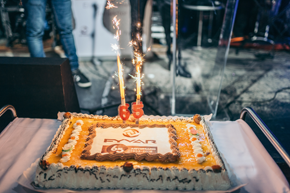
The Spanish-Portuguese association Fyvar turned 75 …
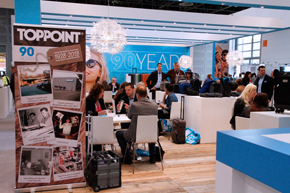
… and the Dutch importer Toppoint celebrated its 90th anniversary.
“Make sure, we keep talking”
Online selling offers opportunities of reaching a clientele that is used to comparing offers on the web as well as buying goods per Internet and having them delivered to their homes the next day. However, this constitutes a further shift of the business towards online sales and even more price transparency. This long-term also leads to further losses in the profit margin, which is already at a low level. A division of the sales is in the offing: The standard items with simple imprints that are available within short lead-times will be increasingly ordered online, whereas for individual orders there will still be the need for personal consulting on-site and per telephone. The profession of the classic promotional products consultant will therefore not become obsolete, because the market is evidently demanding more and more individuality. “A typical request is characterised by adjectives such as: ‘individual’, ‘customised’, ‘unique’ and ‘original’” (Dabrowski). It is difficult to cover such demands using algorithms. The trend of shifting the contact to the customer more towards standardised chats on the Internet, is not very helpful. Personal discussions between all of the parties involved – the contracting party, distributor and supplier – are necessary for individual solutions.
“Look up at the stars not down at your feet”
The industry is thus well-advised to make use of the chances the digitalisation brings with it, without placing all their bets on digitalisation. It is the individual creations that set highlights and particularly underline the strengths of haptic advertising – a large reach with low scattering losses, high customer loyalty, high recall values, top scores as popular items and image boosters. In an era of the initial signs of fatigue with the pitfalls of the digitalisation, analogue and sensual media are gaining in significance, especially on the oversaturated advertising market. This offers the industry exceptional chances, if it succeeds in reinforcing the position of haptic advertising more strongly as a marketing tool. The promotional products suppliers and distributors shouldn’t primarily see themselves as product buyers, but instead as co-players in the promotional circus. “Yet, the whole sector, suppliers and distributors alike, are competing on operational excellence – easier, cheaper, faster – just like if we were in a commodity market. Instead we must adapt a new mind set: We are part of the advertising industry. We are in the business of providing advertising and promotional impact. We believe that advertisers should seriously consider ‘product media’ when allocating their promotional and advertising budgets” (Creemers). In some cases this is being achieved more efficiently than a few years ago: “The marketing and communication departments are paying more and more attention to haptic advertising, because it incites people and arouses the senses” (Marcel Spiess, Cadolino®). But there is still plenty to do: “It is important to underline the potential of haptic advertising to potential customers, following the motto little strokes fell big oaks” (Spiess).
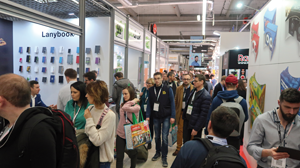
The 14th edition RemaDays Warsaw recorded 20,000 visitors from 54 countries and around 800 exhibitors.
Undertaking genre marketing for the promotional product is still one of the industry’s most urgent tasks. Whether opening up the PSI Show in Düsseldorf to invited industry customers on the last day, which was introduced in 2017, is a logical measure here is a hotly disputed issue. The fact that the PSI Show is closing ranks with Viscom and the new Promotex Expo – the new alliance will be staged for the first time in Düsseldorf in January 2019 – is an equally controversial subject. Many distributors fear that this will lead to a further dilution of the leading European trade show for the promotional products, others are the opinion that this will bring big opportunities with it: “The new trade fair alliance is a positive development for the PSI Show, but also for the entire industry” (Baumgärtner). “The link between these fairs creates a potential synergy from which all exhibitors can benefit” (Chicco).
“You cannot predict the future”
The new alignment of the PSI remains to be an experiment, before we can judge the outcome we will have to wait and see what the results are. “You cannot predict the future,” confirmed Stephen Hawking, the future is not written in the stars, which he researched so thoroughly. We don’t know what else 2019 will bring. Many are worried that the economy could start to weaken at some point: “The economy is doing so well, but I have the feeling that it is very fragile and based on sentiment. I do not want to sound pessimistic, but at some time we will end up in a crisis because nothing has really changed in the economy since 2008” (Noordwijk). “The predictions by the experts for the next year in Turkey and the road ahead for the global economy aren’t pretty” (Bars). For the British market players a lot will depend on how the Brexit turns out and whether a reasonable agreement is negotiated with the EU or not. But there are many question marks in other markets as well. And yet: the mood is good, the industry presently has little reason for exaggerated pessimism. If it succeeds in mastering the challenges it faces as a result of themes like sustainability and digitalisation and adapts in line with the change as in the past, this won’t just be a sign of intelligence, but also the basis for future success.
// Mischa Delbrouck
Photos: Archiv WA Media, © WA Media GmbH
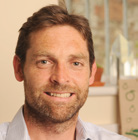 How was the year for ecopromo?
How was the year for ecopromo?
Evan Lewis: The start of 2018 was a little slower than we expected but very quickly things started to change and it’s turned in to a great year for eco-promo. The back-lash against plastic is certainly helping our business.
Is the promotional products market really developing more towards sustainability?
Evan Lewis: We have certainly seen an increase in demand for eco-friendly and sustainable products. I expect we will see even more companies improving their product range and including more eco-friendly items in the future. We have to be careful as to whether they are genuine of course. Some companies, however, are doing a great job and I hope more will follow. The anti-plastic movement is one of the strongest I have seen in 15 years selling eco products, I hope it makes a lasting difference.
Which challenges do you see when dealing with the promotional products trade?
Evan Lewis: Legislation and maintaing the product safety is the most important thing, it is essential. This could become difficult if the UK chooses not to follow the EU rules for product safety. After that the environment must be the most important thing to consider, there are a lot of wasteful products in our sector, giving promotional merchandise a bad name and also damaging the environment. Getting the distributors to actually persuade their clients to change is a really difficult battle. Only if they are asked by the end user for something eco do they supply it. This is very frustrating, I wish the resellers would be more proactive.
What is your prognosis for next year’s Brexit and how will it affect the industry and your company in particular?
Evan Lewis: More than 35% of our sales are now exported in to mainland Europe and that segment is growing. If there is a sensible exit and the UK keeps a close relationship with the EU, I hope we can all continue trading with each other as we do now. Even so, there will be some negative impact because of the way many European business owners see the UK now. If we have no deal and the exit is disorganised, it will have a massive impact on all companies in the UK trading in mainland Europe, including the promotional merchandise sector.
So which headline from politics would you like to read in 2019?
Evan Lewis: “UK and EU find lasting solution for free trade while protecting the environment”.
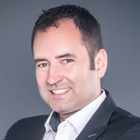 How did the turnover and margins develop in 2018?
How did the turnover and margins develop in 2018?
Marcus Sperber: We have achieved a positive result in the current calendar year. We were able to reach our set targets with regards to both our turnover and the margins.
Did the unstable global climate – keyword: trade wars – have an impact on your business?
Marcus Sperber: Our “made in Germany” plastic production is our big advantage. This pillar is not affected by many of the restrictions and the situation in other parts of the world. We mainly produce for the European market and are virtually not affected by the ongoing trade wars.
What are the current product trends? How important is the theme sustainability?
Marcus Sperber: Nearly all of the trends were directly or indirectly connected to the theme sustainability. In addition to design and functionality, today’s promotional products have to satisfy the social demands for a sustainable and as far as possible ecological production chain. This applies for both the production of items made of resource- saving or bio-degradable raw materials as well as for the theme reusable or recycling in general. The avoidance of disposable waste such as paper cups and the conscious handling of resources is this year’s big theme and will no doubt also determine the trends next year too.
How are the import markets developing and which role does China play in here?
Marcus Sperber: China is presently struggling due to the trade war with the USA. Many American importers are searching for alternatives in the nearby Asiatic countries. From an American point of view and taking the cheaper import duties into account, on the whole products can be manufactured less expensively there than in China in spite of the in some cases higher price levels. For us China remains to be the main market in the import sector due to the stable structures and still less expensive prices. However, the production locations will without doubt expand more to include the neighbouring countries over the coming years.
An increasing number of suppliers are documenting product certifications so that they can be called up immediately, among other things online. Which role does transparency play for the user?
Marcus Sperber: Transparency is very important and above all it is essential that the same standards apply for all of the suppliers. We have been having our products tested by certified institutes as well as in our own in-house laboratory for many years. The safety and conformity of our products is our top priority. The certificates can be requested from us at any time and our customers thus receive the necessary background information on the safety of their products.
 You’ve been the new CEO of Giving Europe since December 2017. How have the first twelve months been?
You’ve been the new CEO of Giving Europe since December 2017. How have the first twelve months been?
Wolf Creemers: My first year has been terrific and very educational. The world of promotional gifts is on the move. I have met many interesting people in the various countries we operate in. The colleagues and business partners of Giving Europe have given me a warm welcome.
Which opportunities and challenges does the digitalisation bring with it?
Wolf Creemers: Digitalisation is about raising service levels and increasing efficiency throughout the value chain of promotional products. The challenges are twofold – firstly, technologically connecting the various players in the value chain, and secondly, aligning those same players to jointly fulfil the advertising and promotional needs of the end users. Both are big challenges not to be underestimated.
The so-called disruptors – from online retailers to online printers – are increasingly entering the promotional products business. How does this change the market? Will the standards known from everyday online shopping also become the benchmark for providers of promotional items?
Wolf Creemers: The battle for the advertiser has indeed begun. This will have a deep impact on the business model of existing, traditional distributors. Many of them need to change their focus on trading products to include providing advice on their promotional or advertising impact. For neutral goods the lead-time standards of online shopping already apply: order today and receive delivery ultimately tomorrow. This will and should remain different for the lead-times of branded orders, which are unique projects with various customer-supplier touch and decision points along the way. Too much rushing will ultimately deteriorate the end result for the advertiser.
More and more suppliers are trying to make their product certifications immediately accessible, i.e. online. Is this becoming a standard?
Wolf Creemers: Transparency is becoming the standard, also for certifications. I’d like us to stop using the words “end customers” and “end users” and talk of advertisers and consumers instead. Promoting and protecting brand value is a key challenge to advertisers. Consumers are increasingly aware of sustainability and compliance and are starting to behave as such. We have recently witnessed some negative consumer reactions to compliant, yet non-sustainable promotional products. Social media spreads the word fast and the brand image of the advertiser takes a hit.
Which challenges do you see when dealing with the promotional products trade?
Wolf Creemers: I see a paradox. Tens of thousands of different products are branded with an endless range of corporate logos or promotional messages. Therefore every order for printed promotional products is a unique project. Yet, the whole sector, suppliers and distributors alike, are competing on operational excellence – easier, cheaper, faster – just like if we were in a commodity market. The challenge I see is not to merely supply to distributors, but to change our joint mind set. So far we have narrowly defined our world as a “world of promotional products”. Instead we must adapt a new mind set: We are part of the advertising industry. We are in the business of providing advertising and promotional impact. We believe that advertisers should seriously consider “product media” when allocating their promotional and advertising budgets. To make that happen, the suppliers and distributors must work much more closely together and both bring unique added value.
How are the import markets developing and which role does China play in this respect?
Wolf Creemers: We don’t see a shift from traditional sourcing regions to (Eastern) Europe. Within China, we see an increase of environmental awareness, an increase of scale and more production for the Chinese domestic market.
 How did your turnovers develop in 2018?
How did your turnovers develop in 2018?
Marcel Spiess: Our turnovers developed extremely positively: They already increased by doubledigit percentages at the beginning of 2018 compared to last year. We were able to maintain this high level. July was the only month – as in the previous year – with the least amount of incoming orders. Perhaps that is due to the fact that many Swiss people are on holiday then.
Did the sizes of the orders grow analogue to this?
Marcel Spiess: The order sizes have hardly changed. As classic promotional products consultants the quality and the right choice of promotional products are the priorities of our customers. The quantity is secondary. Furthermore, Switzerland is a small country so the volumes are mostly much smaller than in other countries like Germany for instance.
What was the biggest challenge of the year for you?
Marcel Spiess: As a member of the BSCI, we attribute great importance to the theme sustainability. We want to ensure that the entire chain of the order processing and production are sustainable and above all that these correspond to our ethical principles as well. This demand requires much monitoring and adjustment. The theme data protection wasn’t that present in Switzerland this year. However, we presume that the GDPR will be adopted in Switzerland by 2019 already. So, we have occupied ourselves with this theme intensively this year and now comply with the provisions for the European zone.
Has the standing of haptic advertising changed over the past years?
Marcel Spiess: The marketing and communication departments are paying more and more attention to haptic advertising, because it incites people and arouses the senses. Nevertheless, we still have to raise awareness and explain how promotional products can become successful marketing tools when the necessary creativity and individuality is applied.
How do you assess the Swiss trade show landscape including the Newsweek Switzerland, which was staged for the first time this year under the aegis of the Swiss industry association, Promoswiss, in cooperation with the German Promotional Products Association (GWW)?
Marcel Spiess: The Newsweek Switzerland probably suffered slightly from the low attendance figure. But it was the first edition and the organisers will no doubt make the necessary adjustments. In addition, the marke[ding] in Zurich has been taking place for several years in March, which has totally established itself on the Swiss trade fair scene and we are proud to be one of the supporting agencies. The same applies for both events: It is important to underline the potential of haptic advertising to potential customers, following the motto little strokes fell big oaks.
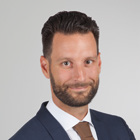 How was 2018 for your company – what’s your resumé of the year?
How was 2018 for your company – what’s your resumé of the year?
Andre Noordwijk: Until November 1, BeGlobal has grown by 34.9% compared to last year. This is the largest numeric growth in our history. To maintain the same quality standards that we implemented up until now, we are facing some challenges in gaining the right resources, both in terms of storage capacity and employees. The costs for these resources have increased exponentially. We therefore have to keep a close eye on our overheads, so that we remain to be a lean company even when the economy eventually starts slowing down.
Sustainability is on everyone’s lips: is the promotional products market really developing towards more sustainability?
Andre Noordwijk: I sincerely think that our market is doing a good job compared to other industries and even the retail sector. However, the years that follow will bring a lot more challenges, even stricter regulations and a change of public opinion towards an even stronger focus on sustainability. This will put our industry to the test, but basically it’s a good thing, as we have to make changes in order to live in harmony with our planet.
Does a sustainable approach also bring benefits on a strategic level?
Andre Noordwijk: The focus on sustainability really brings an opportunity for us as local players as opposed to direct imports from Asia. Buying directly entails a lot of responsibility and taking care of these complex matters is one of the added values that we have in our part of the distribution chain. What other key elements are becoming more significant?
What does the promotional products agency of the future look like?
Andre Noordwijk: There have been a lot of voices saying that our industry will consolidate and will be influenced by new entrants, but I’m not sure about this. Until now, this has had little influence. I am not sure if this will happen in the future, because our industry is so specific. Another hot topic that is being frequently discussed is the digitalisation of our industry. We invested in our digital infrastructure even during the financial crisis. I think we are pretty up-to-date for the time being.
Your prognosis for 2019?
Andre Noordwijk: The economy is doing so well, but I have the feeling that it is very fragile and based on sentiment. I do not want to sound pessimistic, but at some time we will end up in a crisis because nothing has really changed in the economy since 2008. I hope that this will not be in 2019, of course. One thing I would really like to read in the news is that platforms like Alibaba are subjected to the same standards we have to adhere to as importers.
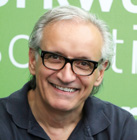 How did the fiscal year 2018 go for your company?
How did the fiscal year 2018 go for your company?
Manfred Janek: Overall, we are satisfied, we achieved growth on all three markets of the D/A/ CH region. These are becoming more and more similar: Whereas in the past Germany in particular was very price-sensitive, this development is also increasingly noticeable on the other markets now too, especially in Switzerland. The Sprout pens, which a plant grows out of after use, are still our “hot sellers”. But it is recognisable that the customers are also paying attention to the sustainability aspect for the higher priced items too – i.e. the Retap glass drinking bottles. We attained good growth in this area. Nevertheless, the price pressure is of course also noticeable here. The customers ideally want sustainability at the price of the “classic” products.
KW open is considered to be one of the pioneers on the market in terms of sustainability. Is the demand increasing for sustainable products? And are the initiatives in the field of sustainability sufficient?
Manfred Janek: Above all the interest in sustainable products is increasingly tangible. Unfortunately, that doesn’t actually mean significantly better turnovers. One can see this from the financial status of sustainable suppliers, which apart from a few exceptions are quite low down on the scale of profitability, one could also say “ecology doesn’t bring a good return”. The price remains to be an important decision-making criterion. In other words: We have significantly more enquiries, but the customers often then opt for less sustainable options due to the price. However, what we are definitely observing is that the companies are more willing to work with us because we have a sustainability concept. This is clearly a door opener in the meantime. There are definitely not enough initiatives that promote sustainability. We try to generate interest via training and lectures, we are additionally active for the “Green Gimix” platform, which assesses promotional products and illustrates positive examples. However, here we need the readiness of the manufacturers to submit the products and also place them on the platform for really low costs. The approaches of your publishing company on the theme of sustainability – the journalistic work and the Promotional Gift Award – are positive. The PSI contributes here with the Sustainability Award too, but overall much too little is happening. Something could be achieved via the training sector of our industry, skilled employees are not frightened when it comes down to dealing with questions on ecology and social competence. This is an important lever.
Are you sensing – perhaps due to the demand for eco-friendly and socially responsible products – a relaxation in the price discussion?
Manfred Janek: No not on the whole, exceptions here are predominantly small and medium-sized ownerrun companies, especially if the owners are interested in sustainability.
Has the standing of haptic advertisers improved among your customers over the past years?
Manfred Janek: Definitely, overall the promotional product has become more important, however the industry has also become more transparent and the requirements of the customers more specific. Things are moving away from the mainstream towards special solutions.
What is your forecast for 2019?
Manfred Janek: Stable values for haptic advertising. I simply hope that greater importance is placed on sustainability. And I expect more genuine sustainability instead of greenwashing, simply because the customers are more aware and better informed. We will certainly put a lot of energy into achieving this.
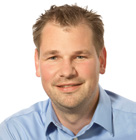 How are the import markets developing and which role does China play?
How are the import markets developing and which role does China play?
Steven Baumgärtner: For us China is still one of our most important procurement markets, even if the price war is partly taking on absurd forms and is becoming totally extreme. In addition, imports from third countries are becoming increasingly more complex and the customers‘ quality demands are growing. However, the latter is urgently necessary because too many products are still being introduced onto the market that don’t comply with the regulations, laws and norms at all.
What do you undertake yourselves to ensure that the quality standards, CSR and legal provisions are adhered to?
Steven Baumgärtner: Cyber-Wear has had its own department for this theme since 2016, which documents the global demands and ensures on a day to day basis that we are always totally up-to-date. All of our locations worldwide work together closely to monitor and safeguard our supply chains.
Which role does e-Commerce play at cyber-Wear?
Steven Baumgärtner: We programmed our first B2B shop in 2001 already – since then developing and operating in some cases very complex shop systems in the B2B and B2C sector has been one of our core competences. In the meantime, we work together with 16 employees in the IT department on diverse global shops.
How do you assess the new trade show alliance between the PSI, viscom and the PromoTex Expo that is taking place for the first time?
Steven Baumgärtner: In my opinion the new trade fair alliance is a positive development for the PSI Show, but also for the entire industry. The PSI Show is the highest quality and most professional platform that the industry has to offer worldwide. The expansion of the portfolio and thus also that of the visitor group will no doubt have a positive effect – we are already recording increased interest from our customers.
Which product trends are currently topical? What is the end user demanding?
Steven Baumgärtner: We are observing that the customers want to implement more and more individual and above all more sustainable products, whilst at the same time the budgets are in some cases strongly reduced. Furthermore, the customers desire conceptual product developments that are part of a whole collection, rather than individual items.
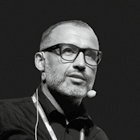 How was 2018 – what were the challenges, what were the highlights?
How was 2018 – what were the challenges, what were the highlights?
Olaf Dabrowski: 2018 has been a very good year for Goldenberry and despite such a competitive market, it is another year of double-digit, dynamic sales growth. We are managing to keep a healthy balance between developing our current client base and gaining new ones, which are interesting in terms of brand and potential. From a global perspective, it has been the first year for us as members of Ippag (International Partnership for Premiums and Gifts) and shareholders of their commercial branch Prominate – two amazing projects we are proud to be a part of. We take advantage of the Ippag and Prominate experience, but we also try to share our knowledge and experience on the Polish market, which is developing fantastically. We’ve successfully implemented the cooperation with global customers of Prominate, who until now haven’t had a contact point in Poland. There are two large projects that we are implementing as we speak: The first is a state-ofthe-art warehouse that will enable us to even further improve our customer service in terms of storage, fulfillment and distribution, and eventually will enable us to fulfill the role of a European hub for global projects. The other one is the start-up of a Prominate office in Kiev, Ukraine. Since October, we have been very active there, contacting the first Prominate customers and actively searching for potential new ones. We’re excited to build a business “from scratch” in the Ukraine and we believe that our experience from the Polish market will help. Last but not least, 2018 is another year in which we increased our headcount and developed our organisational structure with positions that had not existed previously. We place great value on the development of our employees and their competences, especially when it comes to making them proactive and work independently. We cooperate with coaches and personal trainers and we see the positive results every day.
How much individuality does the end user demand?
Olaf Dabrowski: A typical request is characterised by adjectives such as: “individual”, “customised”, “unique” and “original”. Both the small one-time customers and the big shots with a large budget require us to handle their requests in the most individual manner possible. This applies to the service, but also to the selection of products, packaging or personalisation. The more creative and individual our ideas are, the greater our chances of succeeding are and luckily we have significant possibilities in Poland of offering unique solutions – we have access to local suppliers, small family companies and workshops that are an incredible support when performing demanding projects. Of course, we will always provide so-called commodities such as a T-shirt, an umbrella or a cup, but we see that the end customer is becoming more and more demanding.
Which role does e-Commerce play for your company?
Olaf Dabrowski: All the web shops we offer our clients are a form of internal or external e-Commerce. The users should not see any difference between private internet shopping and our systems, which must be intuitive based on one-click and UX technology. When comparing our first webshops that were implemented in 2014 to the modern ones, the progress in the design and functionalities of our tools becomes evident. For me, one of the most important goals for 2019 is making even better use of the e-Commerce tools that our suppliers provide us with.
How important is digitalisation in general for your strategy?
Olaf Dabrowski: It has been a vital element for years. In the extremely competitive Polish market, players that implement digital tools have better chances than standard promotional suppliers. The thing we love about digitalisation is that it is easy to show the customer the efficiency of these projects and their return on investment, which nowadays is of utmost significance. From our team’s perspective, as opposed to merely selling products, digital projects are a great opportunity for selling complex solutions that provide additional turnover and margin. And from a customer relationship perspective, each complex digital project helps establish close business ties and inspires us to create more. Goldenberry wishes to be a typical “one-stop-shop” and to disburden the marketing divisions of our customers. We have a full background – IT, warehouse, logistics – to perform projects that sometimes have very little in common with our core business and to design tools that automate and support our customers’ marketing and sales, HR, loyalty and engagement projects etc.
So which services beyond the promotional products business do you offer?
Olaf Dabrowski: When observing our daily business we see more and more warehouse-logistic operations, IT tools, projects performed by our graphics office, operating incentive and loyalty programmes. We love complex projects because it means fresh blood for our DNA and possibilities to develop the company, turnover as well as the opportunity to gain new customers through references and case stories. This year, apart from typical marketing projects, we completed webshop solutions, applications for managing corporate clothing, training platforms for the pharmaceutical industry, loyalty and motivation programmes. One of the most recent projects that we are particularly proud of is a cash back-type event for a new customer. It was our first activity of this kind, but the outcome was amazing and the money-return technology for cash back users enabled the perfect automation of the entire project. We operate on the edge of ‘out of the box’ and ‘the sky is the limit’ every day, and we shall follow this path in 2019 and beyond.
 How was 2018 for your company – what were the challenges, what were the highlights?
How was 2018 for your company – what were the challenges, what were the highlights?
Serge Birecki: Pixika turned 15 this year. We are still a young company compared to the major and older players in the promotional products industry, but we came in with new ways of doing things. For example, we were the first company to offer a five days delivery service anywhere in Europe, which is now becoming the standard delivery time. We are proud about what we’ve achieved so far, but this is only the beginning of the story. We’ve had two-digit growth for the past five years and we were able to double our turnover within the last three years. While many people believe that this is an enjoyable position, it’s indeed a tough job to deal with such tremendous growth, since we don’t want to lose our agility. This year, we succeeded in releasing our new ERP in SAAS mode, the first step for a deeper rebuild of our overall information system including our website to be released in the first quarter of 2019, which will offer our customers a unique and much more efficient experience. I believe our customers are now digital-friendly since they’ve been using the internet for their personal needs on a daily basis and both buyers and distributors are now mature enough to buy online. This is the major challenge as we have to face what I call “silent” competition against the pure online players that are silently entering our market with huge funds. This is insidious, since you don’t meet them in person, for instance at trade shows, but they are taking over market parts slowly but surely. They’re cutting prices down with a great level of service, cold-blooded behaviour and no feeling at all. They don’t care about the market structure and its traditional actors and sell to any type of company. Face-to-face meetings will remain fundamental for our business, but digital is taking a paramount importance in people’s life, especially in their jobs. To reinforce our digital skills, we bought a software editor, which has developed an app for our sale representatives, giving them a flexible and digital tool to perform efficiently during trade shows and customer visits. The next step is to sell this app to our customers. Finally, we are also working on our CRM and we’ve hired a data scientist to structure and use data for building a more personal relationship with each one of our customers. People enjoy an individualised relationship with their suppliers. We want to be more predictive in our commercial approach and to be able to accurately anticipate our customers’ needs. Our business must keep professionalising. Companies must create value and invest, but there are too many actors, our market is too fragmented, which destroys value and impacts margins. I think a consolidation of the market could be positive, it might be the next step.
How are the import markets developing and which role does China play in this respect?
Serge Birecki: We focus on electronics, Internet of Things and smart products, in this sector the Chinese suppliers remain to be the key actors. Although we source some premium components and technology especially in Taiwan or even in France or Germany, China is and will remain to be the world factory for years. We design products and apps in-house, but once you have to start mass production, you have to manufacture and import from China to achieve an affordable price level. However, we have warehouses and workers in Europe for stock-keeping, short-time delivery, a high level of customisation and assembling products on demand. We import spare parts which allows us to keep agile and offer our customers a large range of colours and packaging.
Has the uncertain political situation in the world had an effect on your business?
Serge Birecki: We are living in a global world with deep links and international interactions. Our markets are extremely sensitive to any turbulences, especially when you are a European company. Political instability in Italy affects sales, strikes in France have a negative impact, the trade war between USA and China influences the prices for raw materials and the currency rate.
What do you do to ensure that your products comply with legal requirements?
Serge Birecki: Our suppliers must be compliant with local norms and regulations and they have to guarantee us that their products are compliant with European norms. We perform audits with wellknown third party companies and we have our products tested by professional laboratories. We also cooperate with experts and counsellors, who validate each report and certificate provided by our suppliers. Our in-house, quality control team of four works closely with our quality manager, who used to be in charge of compliance and quality in the semi-conductors industry. We’ve just passed an audit by a big European distributor with excellence. Our next step is our ISO 9001 certification, which we are aiming to complete by the end of 2019.
Do you do anything about competitors, who are not quite honest about the legal requirements?
Serge Birecki: More and more distributors are well-informed about product norms and standards and that’s the way things should be. Unfortunately, some unscrupulous suppliers are cheating and provide fake certificates to buyers, who are not well-trained enough to identify whether certificates and reports are fake or not. We need to be didactic, inform buyers about their responsibilities and teach them how to identify fake documents. One can always find a cheaper product that looks similar at first sight. Buyers must ask themselves why it is cheaper, in most cases compliance explains the price gap.
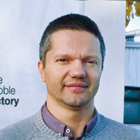 Were there any special challenges for your company in 2018?
Were there any special challenges for your company in 2018?
Ricardo Palma: We continued to push our investments in new technologies and solutions forwards, which we began with in the years previous. Our main concern is the environment and in 2018 we succeeded in aligning our production so that all of the waste products that occur during the production process can be reused. Hence, we are now not only a zero-waste company, we can also process and recycle plastics from other sources and use them to manufacture our products. Furthermore, we modified our printing process in 2018 so that we can reuse or recycle all printing dyes without wasting a single drop. Finally, we installed 2,500 solar panels on top of our factories to improve the C02 balance of our products. These investments in the eco-friendly future of our company were the main challenges in 2018.
How are the import markets developing and what role does China play here?
Ricardo Palma: China is still an important rival for the products we manufacture. Not only the quality has improved greatly over the course of the years, China is also investing strongly in automation in order to combat the increasing costs for manual labour in the factories. The growing domestic market in China enables many of the companies there to grow rapidly and become very competitive. We can’t ignore this in terms of our own investments and innovations.
Print-on-demand solutions are gaining significance on our market. How important is it for you to keep up the pace here?
Ricardo Palma: We have been observing this trend for several years already, the volumes of the printing orders have declined constantly, the delivery times are shorter. Like other companies, we had to invest in digital printing systems in order to satisfy these demands. At the same these investments increase our competitiveness against products from the Far East.
Which opportunities and challenges does the digitalisation bring with it?
Ricardo Palma: The digitalisation is reality – the world is changing fast, but not all of the changes will be successful. The most important question here is not how fast one can follow the trend, but instead to have a good instinct for which trend one should follow. We act as a supplier for packaging solutions for the new players on the digital markets, so it is essential for us to develop the right products together with our partners.
What is your forecast for 2019?
Ricardo Palma: We are sensing that the growth is slowing down, however we still have to maintain a certain pace. Some of the product novelties we introduced onto the market this year were very popular, so we are looking optimistically ahead to the New Year. Even though the investments to optimise our eco-friendliness are not quite yet completed, we plan to invest in automation systems in 2019 to increase our competitiveness.
 What was your year like?
What was your year like?
Lasse Lauritzen: Every new year, we look forward to expanding our business, in one way or another. Our focus areas are to always obtain market growth in all the Nordic countries and to be more profitable over time. Looking back on the months that have passed, we can conclude a growth in all the Nordic markets. However, we have some very exiting weeks to come before 2018 is history. In 2017, November was the best sales month ever in IDE’s history. Will it be possible to beat those sales figures this year?
Do you offer any services beyond the promotional products business?
Lasse Lauritzen: Product media is one of the most effective advertising channels and will always be our core business. On the other hand, the market, the trends and the policies change – IDE must follow. We want to be the one and only partner for our customers, which means we have to serve them all the way from the idea to the finished concept, from the creative workshop to the product in use. Always with the goal of strengthening our customers’ strategy, vision, campaign or internal focus around health, safety and environment. So far, our biggest add-on service has been our webshop solution. To offer our customers a quick and easy way to buy and ship their products, we design, create and operate a unique, customised webshop – in complete accordance with all customer and market needs.
Is there an increased demand for sustainable products?
Lasse Lauritzen: In recent years, there has been an increased demand for products that are sustainable. Consumers are demanding more eco-friendly solutions. More and more companies now say they’ve acted and have integrated the issue into their business strategies. This shift suggests a trend no one should ignore: Corporations are listening to where consumers put their dollars, and as buyers invest their money into eco-friendly products and brands, companies are changing practices to meet their demands. In the promotional products business we are experiencing a growing demand as well and we can offer sustainable products within all product categories. Every year more customers ask for sustainable alternatives. Nevertheless, when we present the prices of the different products, they mostly choose the most affordable option. Our goal is always to offer both, but the customer makes the final decision.
Which product trends are prevalent?
Lasse Lauritzen: As always, technical products are improving and developing, textiles and uniforms are a growing product segment, event and fair concepts are becoming more important. End users are increasingly looking into promotional products as a total marketing concept, not only single products standing for themselves. In this connection, we see more and more customers demanding special productions, unique design programmes where everything is possible and custom-made items that stand out. The market trend is moving towards finding the best product ever to hit the target audience.
What’s your prognosis for 2019?
Lasse Lauritzen: The promotional products market will continue to grow. Product media will continue to take shares on the advertising market, this applies for all the Nordic countries. We will also see more Nordic customers centralise their procurement to get better conditions and for better control of their line-ups. Hopefully, in terms of political issues, the taxable limits on gifts will increase in all countries. One should never forget that on average around 40% of the products distributed as promotional products lead to increased business opportunities.
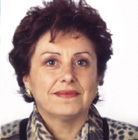 How did your turnover develop in 2018?
How did your turnover develop in 2018?
Laura Chicco: After a slight decline in the second quarter, the turnover is essentially the same as last year. It becomes more and more evident that in the current market the stronger resellers are those with modern organisations, aggressive marketing strategies and a deep understanding of the way today’s customers think. Hence, it is very important for us to create strong business relations with our distributor partners to generate new business together.
Is the uncertain political situation in Italy effecting your business?
Laura Chicco: It might seem strange, but despite the unstable political and economic situation our business continues to grow. The first reason is obviously a stronger visibility on the market and fewer local competitors. The second is a more balanced distribution chain with a group of main partners, but also a wide range of resellers that help cover the market better.
How important are short lead-times and permanent stock availability?
Laura Chicco: Nowadays for a manufacturer, the service is as important as the product. We benefit from our cultural background – “Made in Italy” is synonymous for doing things properly. A distinctive Stilolinea feature that is much appreciated by our customers, is our extremely efficient service: With our 9,000 sqm plant with optimized storage facilities, we satisfy all client needs worldwide in a few days with fast deliveries and small order quantities. Moreover, thanks to our expert moulding department with its research and development team, we can offer tailor-made solutions, creating unique lifestyle objects.
How would you rate the new trade fair network between PSI, viscom and the first-ever PromoTex Expo?
Laura Chicco: The link between these fairs creates a potential synergy from which all the exhibitors can benefit. PSI 2019 will be a great opportunity to meet our most important partners.
Is the demand for sustainable products increasing? Has this changed the price discussion?
Laura Chicco: In general, I believe in an upward trend of sustainable products because promoting companies view environmental awareness as a priority. Yet, not many companies accept the higher price that goes along with environmental responsibility. That is why, right from the launch of our eco-friendly line, we’ve waived a part of our profits thus closing the price gap between our bio-degradable pens and the standard items.
 How would you describe the past year?
How would you describe the past year?
Volkan Bars: 2018 has been yet another difficult year – globally, nationally and for our industry. However, since we work with customers both in Turkey and Europe, our company has not been highly affected. Of course, there have been challenges. As we refused to compromise on our production and fabric quality, we had to give up some of our valued clients due to their demands for high percentage price cuts. The nicest orders have always been the repeats that show the confidence and loyalty of our existing customers. 50% of our European customers have re-ordered this year.
How are the political situation and the currency crisis in Turkey affecting your business?
Volkan Bars: The government has issued an “all-out war” on inflation with the support of the private sector. We were all invited to join a national struggle to tame the soaring inflation. A tight control over the companies that try to increase profits under the current circumstances has almost ended the fluctuation on the prices and enabled stability on production costs. The new programme also included a freeze on energy prices until the end of the year and rebates on VAT. So with all the precautions and support from the government we are maintaining our strong stance.
How important are short lead-times, permanent stock availability, the ability to offer custom-made products and small minimum order quantities?
Volkan Bars: We do our best to keep lead-times short, but since all of our products are tailor-made based on the brands requirements, we do not hold any stocks, so we never have stock availability to respond to short lead-time enquiries. Our minimum order quantities are as low as 250 pieces even for pantone colour orders.
Is the demand for sustainable products increasing and has this demand changed the price discussion?
Volkan Bars: Sustainable products are on demand, which has increased compared to the past years. It has of course affected the price discussions. However, while some of our clients’ customers initially prefer sustainable practices and ask for sustainable products, most of them are not prepared to pay the prices. We are hoping that the prices will become more balanced when the production of sustainable products becomes widespread.
Your prognosis for 2019?
Volkan Bars: The predictions by the experts for the next year in Turkey and the road ahead for the global economy aren’t pretty. But we have been through tougher times, both nationally and globally. We will overcome the difficulties by concentrating on production. Even though the International Monetary Fund has lowered its forecast for economic growth in Europe for 2018 and 2019, they also said the region was still growing above its potential. We will do our utmost to reach potential clients and serve the existing clients and to achieve high quality in production and service. We will keep investing, developing and improving and prepare for the upcoming year with hope and a positive attitude.
 How was 2018 for The China Office?
How was 2018 for The China Office?
Paul Keser: We are able to look back on a fiscal year with stable turnovers and registered no major fluctuations. Because we operate European-wide, we are able to compensate well for the seasonal highs and lows in demand in the individual regions over the course of the year.
How are the import markets developing?
Paul Keser: We weren’t directly affected by political developments such as the trade wars, but the development of the Yuan compared to the Dollar is leading to higher production costs in China. What’s more, higher labour wages in China are having a negative effect on the prices. In spite of this, there is still no alternative for the country as a production location – especially in the case of large order volumes or special product groups.
The guidelines of the EU in terms of product safety are becoming stricter all the time. How do you proceed when you learn that one of your rivals is violating the minimum demands?
Paul Keser: We ensure that our entire product range fulfils the legal provisions of the EU and that the items carry the corresponding CE label. Many of our competitors sell items without a CE label – however for us it simply costs too much time and money to take legal action against these companies. Ultimately, it is down to the promoting companies here: Companies that want to implement legally conform products have to pay the corresponding price.
How strong is the price pressure within the industry?
Paul Keser: The price pressure is high, there is no question about it. The margins in China are low and because the market is stable or the economic growth is indeed declining, the pressure is increasing because of the competition.
Are there any current product trends?
Paul Keser: We visit many trade fairs to engage in an exchange with our supplier partners. We mostly don’t come across any real novelties, it is normally the popular product groups that are exhibited such as writing instruments, bags, caps, etc. There seems to be a higher demand for sustainable promotional products, but it remains to be seen whether promoting companies are really prepared to pay more money for them.
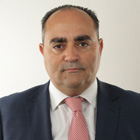 What’s your résumé of the year?
What’s your résumé of the year?
Emilio Estellés-Zanón: 2018 has been a big challenge for our company. We launched a new catalogue with more than 60 new products boasting design, originality and good quality in line with our generalist strategy. In our main market, Spain, a special situation has prevailed for the past three years due to the high level of leading Spanish companies that offer customers huge stocks at the lowest prices ever. This makes the position for the medium-sized companies difficult. While, on the one hand we receive some big orders which motivates us immensely, it is the small orders that come in on a daily basis that give us the courage to continue.
With that in mind: How important are special services like short lead-times, permanent stock availability, the ability to offer custom-made products and small minimum order quantities?
Emilio Estellés-Zanón: The situation on the Spanish market forces us to provide “extra service with added value”. We offer short lead-times, usually changed to “tailor-made delivery times”, permanent stocks and our own printing facilities that allow us to adapt our production to meet our customers’ demands. We can print any item in our catalogue within a regular time of two to five days or even in the case of laser engraving, within 24 hours. What’s more we can send the products to our customer’s client anonymously.
Has the uncertain political situation in the world – keyword: trade wars – had an effect on your business?
Emilio Estellés-Zanón: No, it didn’t affect us. After more than 20 years in the promotional products business we have often seen the political situation interfere with our sales, but usually trade wars are just “noise” with the aim of reaching new agreements. Nowadays, everyone knows that the world trade can’t be imagined without the role of China.
As President of the Spanish supplier’s association, aimfap, you are strongly involved in association work. How do you rate the work and the cooperation of the two associations in Spain and what are aimfap’s most important tasks at the moment?
Emilio Estellés-Zanón: We at aimfap understand that we represent the interests of our associates. Our main task is to provide professional services, as today’s challenges are plentiful and usually common among our associates. We offer for example new regulation adaptations for our members or special discounts for certain professional services and suppliers. We also organise a road show in Spain. The cooperation of the two Spanish associations, aimfap and Fyvar, is good at the moment, especially with regards to the coordination of our road shows. This helps avoid duplicity and saves time and effort for the exhibitors and visitors.
Your prognosis for 2019? Which political headline would you like to read?
Emilio Estellés-Zanón: I think 2019 is going to be very similar to 2018. As the European market is growing more closely together, it will become common and popular practice to purchase products from different countries, not only on the domestic market. This will help the “big guys”, but also the medium-sized companies. Regarding politics: I think it is better not to have too much political interference and let the companies work and create prosperity, but if I had to choose a headline it would be: “The new political law will reduce the number of politicians by more than 50%”.
 What was your nicest order in 2018?
What was your nicest order in 2018?
Has the standing of haptic advertising changed among your customers over the past years?
Erik Jul Nielsen: Yes, one can certainly say that. In our experience, our customers increasingly pursue two aims with the implementation of haptic advertising: They either use them to make a statement, i.e. enhance their image or they implement products that have a special function in a targeted manner to offer the recipient high practical value. The times, when predominantly low-priced give-aways are demanded in high volumes, are long gone.
How much individuality do the promoting companies demand regarding the product development or selection of products?
Erik Jul Nielsen: We have observed that when selecting the products it is more about the functionality rather than individuality. For our customers, the individuality aspect is reflected more in the question as to which product epitomises the company’s values best as well as the manner in which the company wants to be perceived on the market and by its shareholders.
Erik Jul Nielsen: We were able to carry out a campaign for a brand-name company from the retail trade sector that ran worldwide, which aimed to strengthen the brand and the company’s image and attract customers to the retail shops. That was an exciting and challenging task.
The legal provisions and the documentation tasks they are frequently accompanied by are constantly increasing – is this also an experience your company is making?
Erik Jul Nielsen: Yes, things are no different here for us as for most of the other market participants – we too spend more and more time proving the harmlessness of our products by acquiring certificates and seals and we occupy ourselves with the theme of compliance very intensively. Our customers’ demands are increasing here continuously too. It is especially important for big companies to cover their backs. However, it provides us as an agency with an opportunity: Here we can distinguish ourselves from our fellow competitors, which is why we place a strong focus on the theme compliance internally.
Which opportunities and challenges does the digitalisation bring with it?
Erik Jul Nielsen: For us the digitalisation is an important prerequisite for mastering the tasks that arise with a view to our documentation obligations: Here we apply digital systems and tools to a great extent. The challenge here lies in keeping pace with the developments and implementing them within our own process in the best possible way.











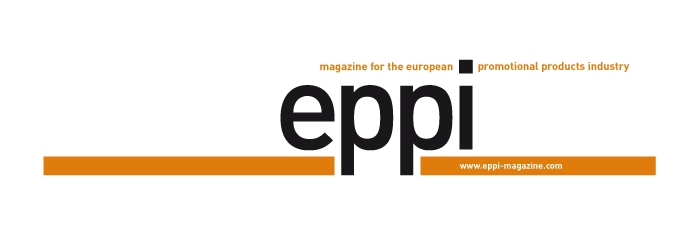
 How was the year for ecopromo?
How was the year for ecopromo? How did the turnover and margins develop in 2018?
How did the turnover and margins develop in 2018?  You’ve been the new CEO of Giving Europe since December 2017. How have the first twelve months been?
You’ve been the new CEO of Giving Europe since December 2017. How have the first twelve months been? How did your turnovers develop in 2018?
How did your turnovers develop in 2018? How was 2018 for your company – what’s your resumé of the year?
How was 2018 for your company – what’s your resumé of the year? How did the fiscal year 2018 go for your company?
How did the fiscal year 2018 go for your company? How are the import markets developing and which role does China play?
How are the import markets developing and which role does China play? How was 2018 – what were the challenges, what were the highlights?
How was 2018 – what were the challenges, what were the highlights?  How was 2018 for your company – what were the challenges, what were the highlights?
How was 2018 for your company – what were the challenges, what were the highlights?  Were there any special challenges for your company in 2018?
Were there any special challenges for your company in 2018? What was your year like?
What was your year like?  How did your turnover develop in 2018?
How did your turnover develop in 2018? How would you describe the past year?
How would you describe the past year?  How was 2018 for The China Office?
How was 2018 for The China Office? What’s your résumé of the year?
What’s your résumé of the year? What was your nicest order in 2018?
What was your nicest order in 2018?